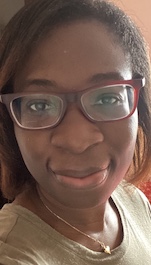Determining the APPropriate Length of an Assignment
I was creating a vocabulary-building exercise for my university students, for which they would listen to a LeVar Burton Reads podcast (he picks and masterfully narrates stories) episode of my choice. The students would be limited to a select number of unfamiliar words and then do the following for each word:
1) Write the definition in their own words
2) Write the sentence they heard the word in
3) Find another sentence online using the same word
4) Use the word in a sentence they create
The only question left was the “select number.” That is, how many words would be appropriate for a 1-hour podcast episode for this set of students? I originally set the number at 10 because I wanted to make the assignment “long enough.” I didn’t want them to just breeze past this assignment in a few minutes and move on, unaffected. However, I ultimately decided to cut it down to 5 words, because making an assignment long for the sake of being long does not make it effective.

The three areas that had a big impact on this shift in my thinking were alignment, purpose, and parameters (APP).
APP
Alignment: How does it align with the aims of the course?
I am teaching a reading and writing course to 21 high-intermediate level sophomores at a Japanese university. Vocabulary building is one of the tasks required by the course curriculum for assessment. It was originally called “vocabulary journal” but I and several other teachers requested the change to allow for more flexibility. My students want to improve their TOEIC scores and study abroad, and thus would benefit very much from increased vocabulary. I also wanted vocabulary building to be a clearly distinct exercise from the extensive reading they were already doing. A colleague of mine mentioned using LeVar Burton Reads with our students. I was already interested in podcasts and audiobooks and figured that listening to stories would be a refreshing change of pace from reading them on a screen. They would hear a voice other than mine or my partner teacher’s. They could hear the pronunciation of words new and familiar to them. LeVar Burton is an advocate and lover of reading, so who better to have read to my students?
Purpose: What is the purpose of this assignment?
Building is active. In order for them to actively build vocabulary, this assignment has three parts: meaning (#1), context (#2 and #3), and application (#4). For meaning, I don’t simply want them to copy a definition from the dictionary: I want them to use the vocabulary they currently possess to demonstrate their understanding of the meaning. Next, I don’t want them to study a word in isolation—they need to consider the context they originally heard it in. Because they are listening only, I ask them to get the sentence as closely as they can (I show them the original later). To help with this, I was intentional with the online audio player I chose. They could not only rewind or fast forward 15 seconds, but they could also move the cursor along the audio range slider to the exact point that they want. If they end up hearing a different word than what was originally said and still complete the tasks successfully, they still get credit for it. From there, context building continues with them looking for another usage of the word online. Finally, they make their own sentences to apply what they’ve learned. The aim is for the students to develop comfort with their words, to come upon them somewhere else at a later time and not have to grab the dictionary. Equally as important, I don’t want enjoyment of the story (and the narration of it) to get lost in doing tasks that are too time-consuming.
Parameters: What are the factors I am working with? Vocabulary building is assigned once a month, and I give the students 3 to 4 weeks to complete it. Considering that for my class alone they have monthly extensive reading, biweekly extensive writing, quizzes, and projects, I believe this is fair. This frequency takes some of the pressure off and, hopefully, allows them to set aside time to actually build vocabulary. After all, I’d rather my students have a solid knowledge of 5 words than an okay knowledge of 10. Results from the first vocabulary building assignment showed that a few students struggled to fully grasp the meaning of 1 of their words, a problem that would have surely multiplied had the assignment been longer. I originally didn’t want students to breeze past the assignment, but the truth is that the best of assignments can and do get rushed through usually (but not only) because students wait until the last minute to do them. If I am providing a reasonable amount of time, then the missed benefits are related to their own actions.
Further Considerations
One consideration is how to further solidify the students’ knowledge of these words. After all, repeated exposure is how we learn. Currently, I am considering an end-of-semester assignment or incorporating it into the required summer project. Another consideration is adjusting the number of words depending on the length of each episode. Their second vocabulary building assignment is with a 30-minute episode, but I decided to keep the number the same to see how that works.
Your context is different from mine, but these questions still apply. I teach other courses with different sets of students, and I use them for those as well. Of course you also need to consider your learners, their needs, their levels (to name a few!), and adjust accordingly. You also have to consider your own beliefs and experiences: I know what it’s like trying to navigate in a second language (Japanese), and that also informs my decisions.
There’s no set length that’s going to work perfectly for every learner. It’s helpful to be flexible and open to change as well, as even previously successful tasks may require tweaking. However, APP can help you get closer to determining what works for you right now.

Author’s Biography: Monique Bloomfield is a New York City native who graduated from The New School’s MA TESOL program in 2016. She is currently a Global Teaching Fellow at Tokyo International University. You can find her on LinkedIn.